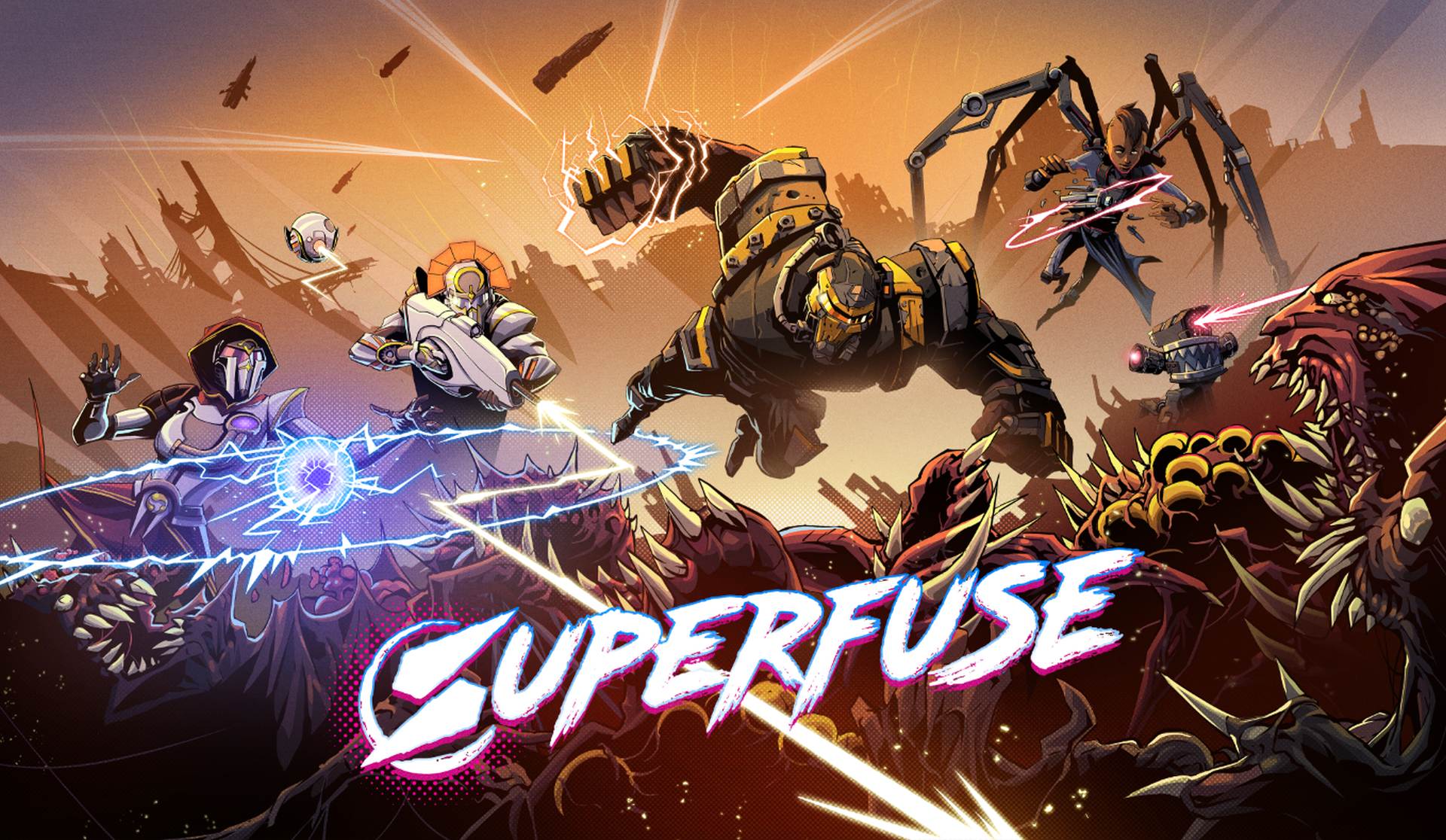Building a better hero
It takes something a little extra to stand out in a genre as specialized as isometric dungeon crawlers. A few games are already providing a lot for players to dig into, and so something new like Stitch Heads and Raw Fury’s Superfuse will need something fresh and new to draw players in. I think it might have that, and in some unexpected places.
Booting up Superfuse, the first thing I noticed was the look. This is a comic book game, with some extreme comic book influence. Those who dig comics like The Boys will feel right at home with the art, as well as the setting. Godlike elites lord over an otherwise impoverished human race, doling out powers to their Enforcers to fight evil monsters called the Corruption across the galaxy.
I started to pick up pieces of modern references, from the artistic styles mentioned above to the way characters reference others from different regions of space using broad terms, a la The Expanse. It’s an intriguing set-up that seems a little strange for a dungeon-crawler, but allows for a lot of visual variety and stylish characters. Rather than something grim and dark, Superfuse has neon glow and a sci-fi meets comic book look to it.
What really drew me in, though, was the skills system. My selected character, the Berserker, had several different abilities: a ground pound, throwing axes, and a series of punches, for example. Each one was interesting but, on its own, somewhat basic.
The skills system is where abilities can grow. Superfuse lets you mod and augment abilities, creating evolved forms. Maybe my axes lose some power, but can split into different directions, or fire both in front of and behind me. Or I might want them to travel faster, or even slower.

Each node lets you designate effects, and when the effects happen. Some happen right when the ability fires, while others apply on-hit, and even more apply on kill or after an attack connects. The more I invested into an ability, the more of these nodes I could open up, to keep augmenting an ability over and over.
I spent a long time during my demo just tinkering with the potentials of this system, eventually crafting a version of my ground pound that ran over the demo’s enemies. One effect released a shotgun blast of projectiles at the end of my attack, so I figured: what if I made more “ends?”

I kept tacking on splitting mods, turning one “end” of my shockwave into more and more until I had at least over a dozen, then had them all fire shotgun pellets out at their conclusion. What I made was, essentially, a bullet hell boss. And it was really fun to play.
There’s a lot that Superfuse has going for it, in terms of reasons to dip a toe in. The world and story seem very unique, and it could be a pretty fresh take on the action-RPG genre that’s usually a little more dour and grim. I like the set-up of these godlike elites, and am secretly hoping the Enforcers get to smack some gods down at some point in the story.

What I think is going to keep people in once they’ve checked it out, however, is the modifiable skills. It was a really enjoyable way to approach evolving my skills, and though I was given freedom to mess around with unlimited resources in the demo build I played, I’m interested to see how it feels over time in the campaign.
Building your own upgrades and arsenal might be more of a draw for those interested in design and weird mechanical interactions, but it certainly has me intrigued. Superfuse is set to launch in early access later this year on PC, with a full launch in 2023.








